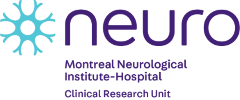CURRENT RECRUITING TRIALS
For information on Brain Tumour clinical trials, please contact
bt-cru.neuro@mcgill.ca.
AGILE (Glioblastoma)
From clinicaltrials.gov
Glioblastoma (GBM) adaptive, global, innovative learning environment (GBM AGILE) is an international, seamless Phase II/III response adaptive randomization platform trial designed to evaluate multiple therapies in newly diagnosed (ND) and recurrent GBM.
INTRAGO II (Glioblastoma)
From clinicaltrials.gov:
INTRAGO II resembles a multicentric, prospective, randomized, 2-arm, open-label clinical phase III trial which tests if the median progression-free survival (PFS) of patients with newly diagnosed glioblastoma multiforme (GBM) can be improved by the addition of intraoperative radiotherapy (IORT) to standard radiochemotherapy.
THE TEAM

Dr. Kevin Petrecca
Principal Investigator

Mostafa Ghozlan
Team Lead
THE TEAM

Dr. Scott Owen
Principal Investigator

Luciano Buonamici
Research Coord.
UPCOMING TRIALS
To come
ACTIVE (NOT RECRUITING) TRIALS
ORBUS (Astrocytoma)
The purpose of this study is to compare the efficacy and safety of eflornithine in combination with lomustine, compared to lomustine taken alone, in treating patients whose anaplastic astrocytoma has recurred/progressed after radiation and temozolomide chemotherapy.
This study will consist of 4 study periods of up to 50 months in total, consisting of:Screening Period – A maximum screening duration of 4 weeks.
Treatment Period – Treatment Arm A up to 24 months; Treatment Arm B up to 12 months.
End of Treatment Visit – A minimum of 4 weeks post last treatment for both arms.
Follow-Up Period – Up to 24 months.
A total of approximately 280 patients will be randomized in a 1:1 ratio to receive either eflornithine + lomustine or lomustine alone.
